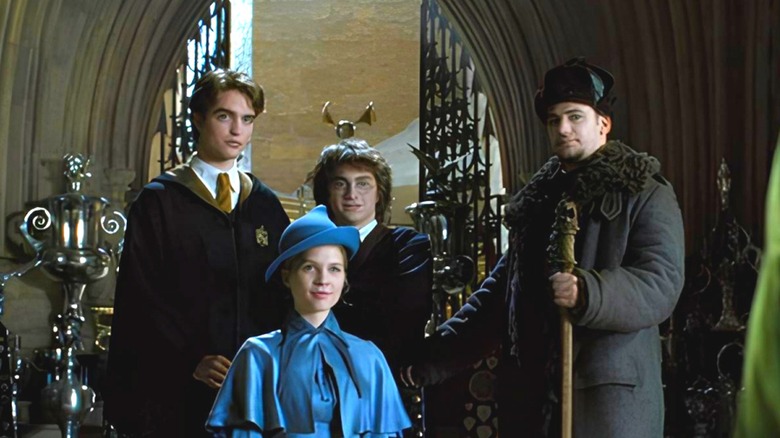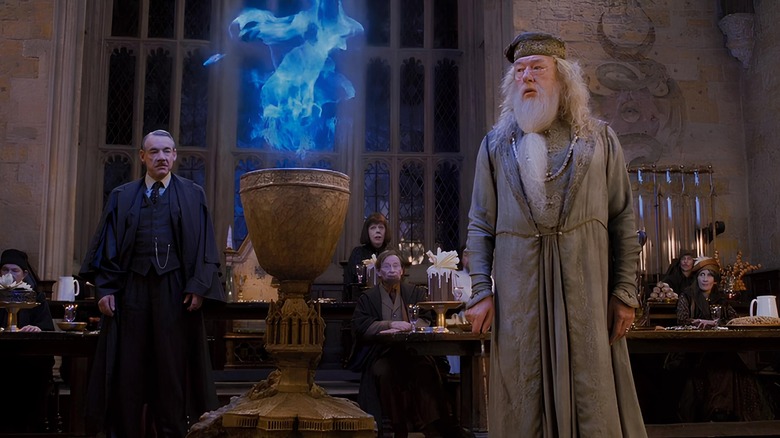Harry Potter: The Original Goblet Of Fire Titles Only Real Fans Know
J.K. Rowling's fourth "Harry Potter" novel went through a surprising series of names before finally becoming "Harry Potter and the Goblet of Fire." In "J.K. Rowling: A Bibliography 1997–2013," author Philip W. Errington reveals that Rowling tried out variations like "Harry Potter and the Death Eaters" and "Harry Potter and the Three Champions." Closer to the mark, she also experimented with "Harry Potter and the Fire Goblet." During a 2000 interview with Entertainment Weekly, Rowling confessed to weighing the efficacy of "Harry Potter and the Triwizard Tournament." The title she toyed with that was most disparate from the final product, however, was "Harry Potter and the Doomspell Tournament."
Rowling did not elaborate as to what "Doomspell" meant, although her protagonist is no doubt grateful for the mild reprieve. Her additional comments suggest that it was a preliminary title for not only her fourth book but for the in-narrative tournament as well. Rowling admitted that the published title stuck because it rang a harmonious cord with her inner fantasy fan. She said, "In the end, I preferred 'Goblet of Fire' because it's got that kind of 'cup of destiny' feel about it, which is the theme of the book."
"Goblet of Fire" seems to have undergone the most publicly shared name changes of the series, and that could be in no small part due to how it was the first book that truly gave Rowling trouble to bring together. "The first three books, my plan never failed me," she told EW. "But I should have put that plot under a microscope. I wrote what I thought was half the book, and 'Ack!' Huge gaping hole in the middle of the plot. I missed my deadline by two months."
Harry Potter and the Trial of Names
"Harry Potter and the Goblet of Fire" is not the first time, nor the last, that J.K. Rowling seems to have dealt with title issues, merely the most elongated and publicized one. Before "Harry Potter and the Philosopher's Stone" was rebranded as "Sorcerer's Stone" for American audiences, Rowling fought to prevent her inaugural work from being published anywhere under the lackluster title "Harry Potter and the School of Magic." Several years later, Rowling considered "Harry Potter and the Peverell Quest" and "Harry Potter and the Elder Wand" as viable titles for what eventually became "Harry Potter and the Deathly Hallows."
Book titles are difficult. They have to compress an entire story into a few catchy words. They have to reveal genre, suggest tone, and pull a reader in, and the best ones do all of the above without coming off like an obvious marketing ploy. For Rowling, at least, there was an established system in place for structure. By the time "Goblet of Fire" came into existence, she'd already published "Harry Potter and the X of Y" twice. It was just a matter of finding the right key terms to plug in to hook readers.
Given that her series has sold upwards of 600 million copies at this point, though, it's safe to assume audiences are perfectly fine with a little formulaic title work. For better or for worse, the "Harry Potter" franchise is consistent. If we're being totally honest, though, "Goblet of Fire" is an incredible name.

